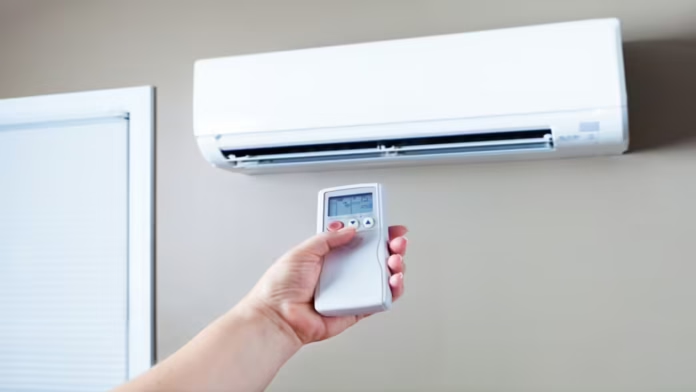While air conditioning provides essential comfort during hot and humid weather, improper usage can have adverse effects on your health. Overcooling, prolonged exposure to artificial cold, and poor indoor air quality are some of the common risks associated with excessive AC use. To avoid these problems, experts advise moderation and smarter usage practices.

Avoid Overcooling
Setting your air conditioner to extremely low temperatures can strain your body’s natural thermal regulation. A sudden transition from the outdoor heat to a chilled indoor environment may cause headaches, fatigue, or respiratory discomfort. Maintaining your AC temperature between 24°C and 26°C is widely considered optimal for comfort and health.
Take Breaks from Continuous Exposure
Long hours in air-conditioned environments can dry out your skin, eyes, and respiratory tract. It is advisable to switch off the AC periodically or alternate between air conditioning and natural ventilation when feasible. This helps the body recalibrate and reduces the risk of cold-related conditions like dry throat, sinus irritation, or muscle stiffness.
Ensure Regular Maintenance and Clean Filters
Air conditioners with dirty filters can circulate allergens, dust, and bacteria, leading to poor indoor air quality and triggering respiratory issues. Regular cleaning and servicing of your AC unit helps maintain a healthy airflow and reduces health hazards.
Use Humidifiers or Indoor Plants
Air conditioners tend to remove moisture from the air, causing low humidity levels that can irritate your skin and throat. Using a humidifier or keeping indoor plants can help balance humidity levels and improve overall air quality.
Dress Appropriately Indoors
Instead of setting the AC at very low temperatures and bundling up with sweaters, wear light, breathable clothes and keep the room comfortably cool. This approach helps reduce electricity consumption and prevents sudden temperature-induced stress on the body.
Hydrate Frequently
Cold environments can dull your thirst response, but dehydration may still occur. Ensure regular water intake while in air-conditioned spaces to maintain internal moisture balance and avoid fatigue or dizziness.
Smart and moderate use of air conditioning not only enhances comfort but also safeguards your health. Adjusting habits like avoiding overcooling and taking occasional breaks from cooled air can make a significant difference in how your body responds to temperature-controlled environments.




